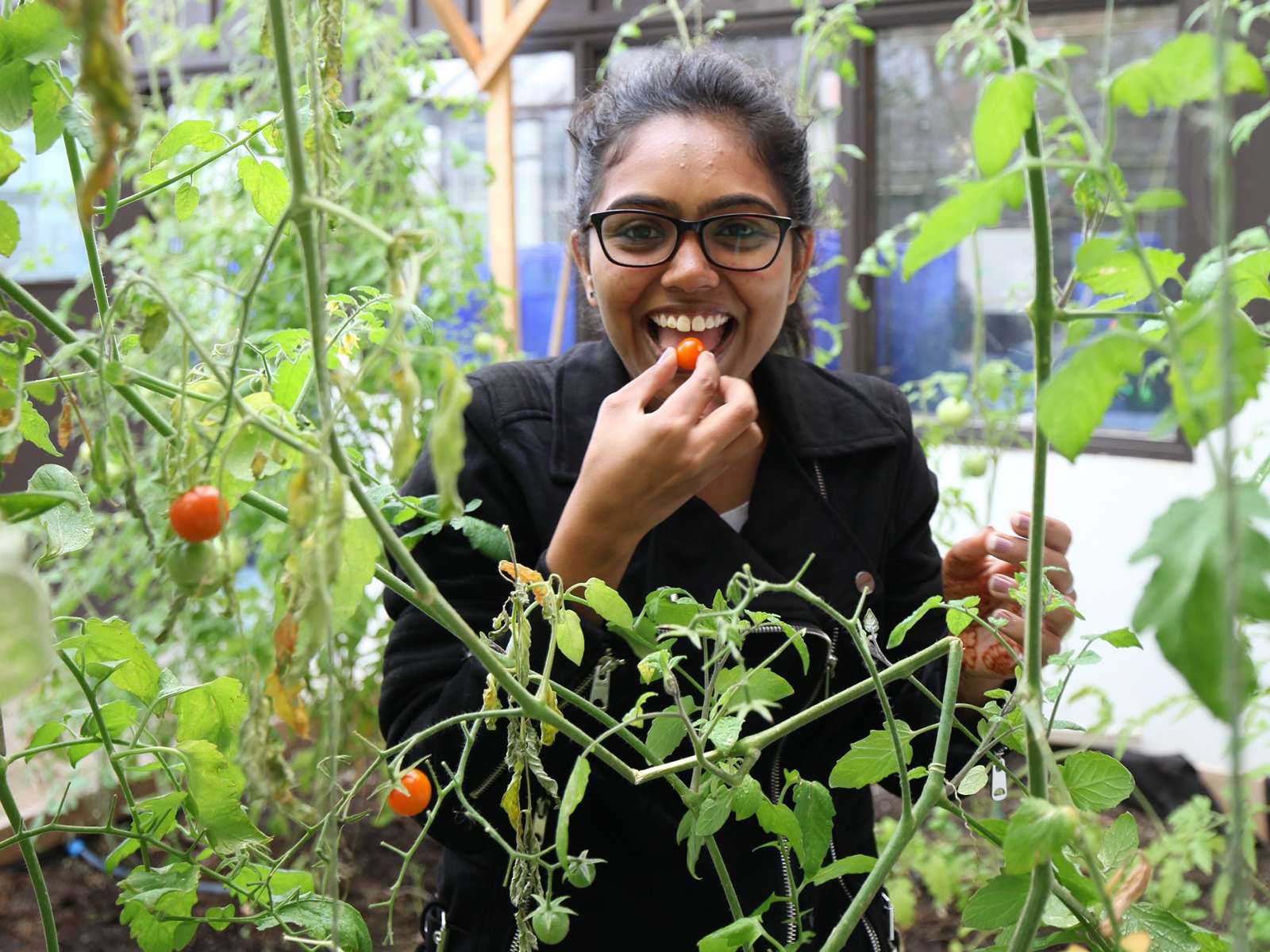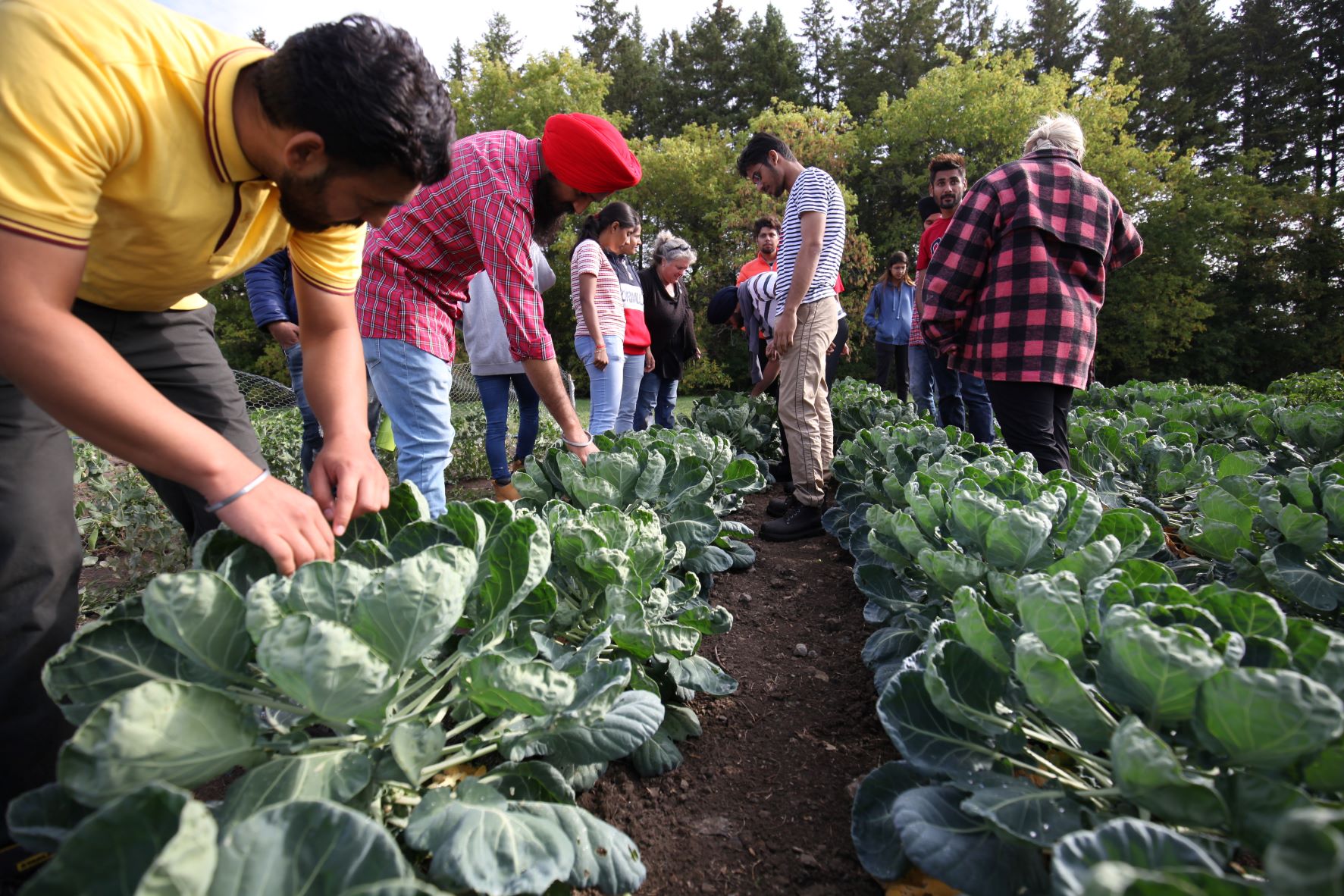Sustainable Agriculture (Co-op)
The Sustainable Agriculture program is designed for new farmers seeking an intensive, applied learning experience in sustainable, ecological or natural farming methods.
Program Information
Start Date
September 02, 2025
Domestic Availability
Accepting Applications
International Availability
Accepting Applications
CIP Code
01.0308
Program Code
SAG
Delivery
In Person, Placement
Credential
Ontario College Graduate Certificate
Academic School
Location
Program Contact
Domestic Tuition
$2934.9 per semester*
International Tuition
$9644.35 per semester*
*Domestic tuition amounts shown are from the 2024-2025 academic year and are subject to change.
*International tuition amounts shown are from the 2024-2025 academic year and are subject to change.
View Curriculum
Throughout the Sustainable Agriculture program you will:
Learn from experienced farmers and practitioners in class, on farm field days, and during panel discussions. Develop your own business case and farm plan. Focus on the principles and practices of sustainable agriculture and small farm operations and viability. Enjoy a highly interactive learning environment.
Farming practices in the program are based on the principles of environmental stewardship, farmer profitability, social responsibility and community health.
The 16-week, on-farm, co-op experience over the summer creates opportunities for specialization. Previous co-ops have included national and international farm locations as well as work with urban food advocacy groups and farmers.
Develop a personal philosophy and approach to sustainable farming, using knowledge of historic and contemporary farm practices, food culture and systems. Protect and renew soil fertility and health through use of composts, green manures, cover crops, rotation, tillage and soil testing and amendments. Develop crop plans and rotations to meet small-scale through field-scale production needs. Manage a small-scale market garden and / or greenhouse operation from seed starts through harvest. Integrate natural biological cycles and controls in managing plant pathogens, weeds, insect pests and parasites. Assess the merits and viability of integrating small-scale livestock production and heritage breeds in the mixed farm operation and manage their husbandry and welfare. Plan for, problem-solve and manage the day-to-day events and operations of the farm enterprise, including maintenance and repair, economy in use of resources, development of on-farm systems, animal and crop husbandry and farm labour. Meet optimal standards of food safety including handling, cleaning, processing, preserving and storage. Develop a viable business case, business plan, and direct marketing strategies to support a non-capital intensive, sustainable farm enterprise. Plan for and manage the day to day business operations of the farm enterprise in order to create a dependable farm income. Develop an integrated farm plan that accounts for ecological farm practices, environmental protection, biodiversity and wildlife preservation. Develop an approach to whole farm thinking that optimizes the management and use of on-farm resources, and reduces the use of non-renewable resources and purchased production inputs.
Students are eligible to apply for Fleming College scholarships and bursaries.
Graduates have started their own small-scale farm operations, are working for not for profit farm organizations, and managing farmers' markets. Other opportunities include: promoting agri-tourism and local food, coordinating community gardens, and managing farm-to-school programs.
Read a recent article about two graduates who launched their own organic farm.
- Develop a personal philosophy and approach to sustainable farming, using knowledge of historic and contemporary farm practices, food culture and systems.
- Protect and renew soil fertility and health through use of composts, green manures, cover crops, rotation, tillage and soil testing and amendments.
- Develop crop plans and rotations to meet production needs (small-scale through field-scale).
- Manage a small-scale market garden and / or greenhouse operation from seed starts through harvest.
- Integrate natural biological cycles and controls in managing plant pathogens, weeds, insect pests and parasites.
- Assess the merits and viability of integrating small-scale livestock production and heritage breeds in the mixed farm operation and manage their husbandry and welfare.
- Plan for, problem solve through, and manage the day-to-day events and operations of the farm enterprise (including maintenance and repair, economy in use of resources, development of on-farm systems, animal and crop husbandry and farm labour).
- Meet optimal standards of food safety including handling, cleaning, processing, preserving and storage.
- Plan for, and manage, the day to day business operations of the farm enterprise in order to create a dependable farm income.
- Develop an integrated farm management plan that accounts for ecological farm practices, environmental protection, biodiversity and wildlife preservation.
- Develop an approach to whole farm thinking that optimizes the management and use of on-farm resources, and reduces the use of non-renewable resources and purchased production inputs.
- Research and maintain networks and resources related to on-going professional learning (including peer support, mentors, government and other services, membership in organisations and funding).
Students applying to Sustainable Agriculture (Co-op) must meet the following requirements:
- Ontario College Diploma or two years of University level undergraduate study or equivalent



